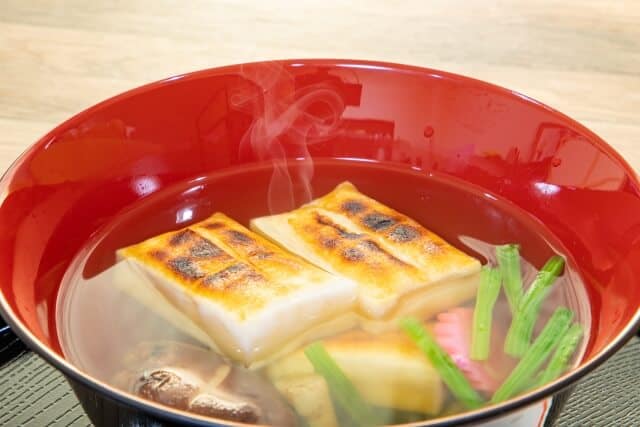
Zouni (雑煮) is a traditional Japanese food consisting of soup stock containing mochi rice cakes, soy sauce, and miso.
This article delves into the traditional Japanese New Year's dish, Zouni, which is widely consumed throughout Japan on this auspicious occasion. The dish, consisting mainly of mochi (rice cakes), soy sauce, and miso, has been part of Japanese culture since the Heian period and exhibits significant regional diversity in its preparation, ingredients, and presentation. The etymology of "Zouni" reflects its mixed and boiled nature, and the soup is seen as a wish for prosperity, health, and longevity.
Zouni varies across regions: in Western Japan, it is commonly made with Sumashi-jiru, a clear soup seasoned with soy sauce and salt. The Kanto region typically uses square mochi, while the Kansai region uses round mochi, reflecting historical practices. Ingredients like kamaboko, kurikinton, and local vegetables symbolize tradition and prosperity, and regional influences include unique ingredients like salmon, salmon roe, and oysters.
Some restaurants specialize in zouni, such as Torii, which serves Eastern and Western styles, and Gekko, known for its rice cakes and tea. The dish is a cultural staple, embodying regional and familial identities. Emphasizing "food education," the article argues that passing down the tradition of making and eating zouni fosters a connection to one's heritage.